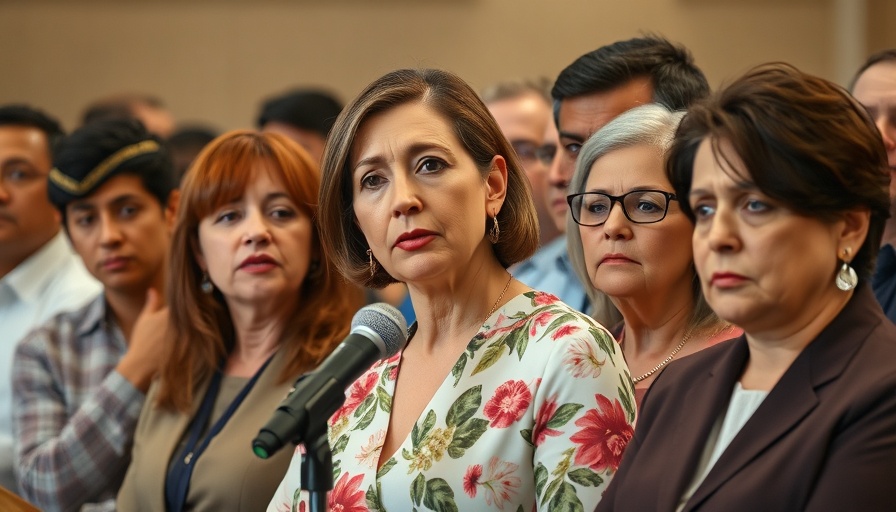
Outrage over Early Parole Application of Officer's Killer
The application for early parole by Raul Gomez-Garcia, the individual convicted of murdering Denver Police Detective Donald Young, has ignited significant backlash from the law enforcement community and the victim’s family. Convicted in 2006 for a crime that shocked the local and nationwide community, Gomez-Garcia is now eligible to seek a program designed for youthful offenders that could potentially reduce his sentence by decades.
The Context of the Crime
On May 8, 2005, Detective Donald Young was fatally shot while on duty, an incident that not only decimated his family but also sent ripples of trauma throughout the Denver police force. As part of a tragic crime spree that included the serious injury of Young's partner, Gomez-Garcia received an 80-year sentence, reflecting the severity of his actions. His recent application to a program primarily aimed at addressing the rehabilitative needs of offenders under 21 has raised fundamental questions about the justice system’s approach to violent crimes.
Impact on the Law Enforcement Community
Statements from police officials, like Chief Ron Thomas, capture the outrage felt within law enforcement circles. There’s a palpable sentiment that allowing a convicted murderer to seek parole undermines the seriousness of his crime and disrespects the sacrifice made by Detective Young. The broader implications of this case extend to law enforcement practices as communities grapple with balancing rehabilitation and public safety.
Perspectives from the Victim's Family
Kelly Young, the widow of Detective Young, has been vocal about her distress regarding the potential early release of Gomez-Garcia. She is concerned not only about her family but about what this decision signifies for the law enforcement community and societal justice. "He shattered our family and shook the law enforcement community; this is a crime against society," she said, echoing the fears of many who have lost loved ones to violent crimes. Her poignant remarks spotlight the human cost of such decisions.
The Juvenile Rehabilitation Program: A Controversial Approach
Introduced in 2016, the program that Gomez-Garcia hopes to utilize aims to provide life skills training and reduce recidivism among young adult offenders. Supporters argue these initiatives can help integrate rehabilitated offenders back into society, yet critics, including many within law enforcement, see it as a potential failure of justice, especially for violent crimes.
Future Implications for Criminal Justice Policies
The situation raises profound questions concerning the efficacy of contemporary criminal justice policies—especially regarding early parole for violent offenders. It prompts law enforcement organizations and policymakers to reassess protocols that prioritize rehabilitation without neglecting public safety and the impact of crime on victims and communities. Discussions about police reform and accountability are now more critical than ever, as they must align with the sentiments and needs of the public and law enforcement personnel.
Conclusion: A Call for Action
The implications of Gomez-Garcia's parole application serve as a poignant reminder of the complexities within our criminal justice system. It underscores a critical need for reform that addresses both rehabilitation and the rights of victims and their families. Policymakers, law enforcement leaders, and the community at large must come together to ensure that justice not only serves to rehabilitate but also prioritizes the sanctity of life and community safety. It is imperative for those concerned with public safety and police-community relations to advocate for policies that prevent early parole for violent offenders, ensuring that the memory of those lost to crime is honored.
 Add Row
Add Row  Add
Add 

 Add Element
Add Element 




Write A Comment